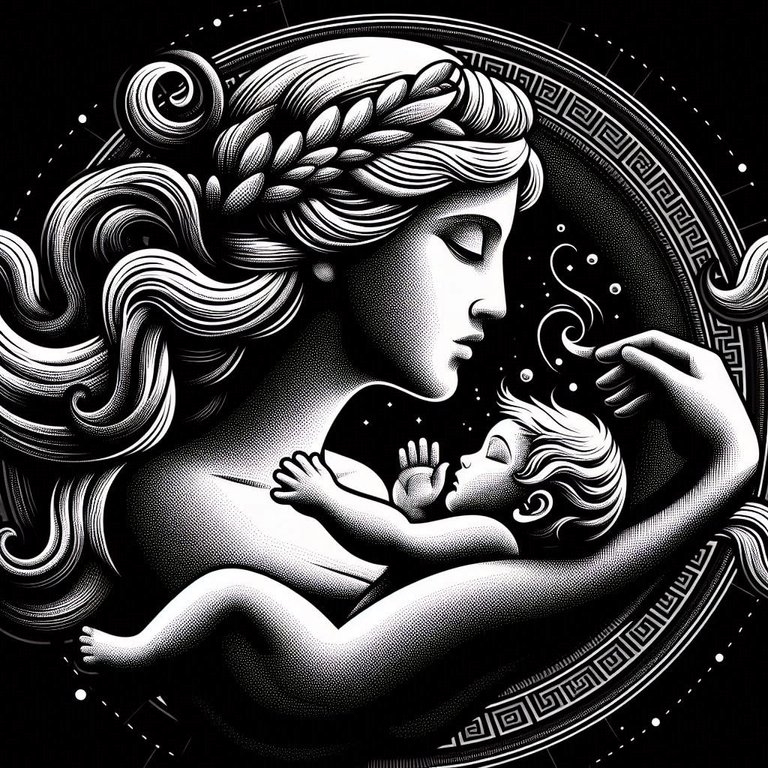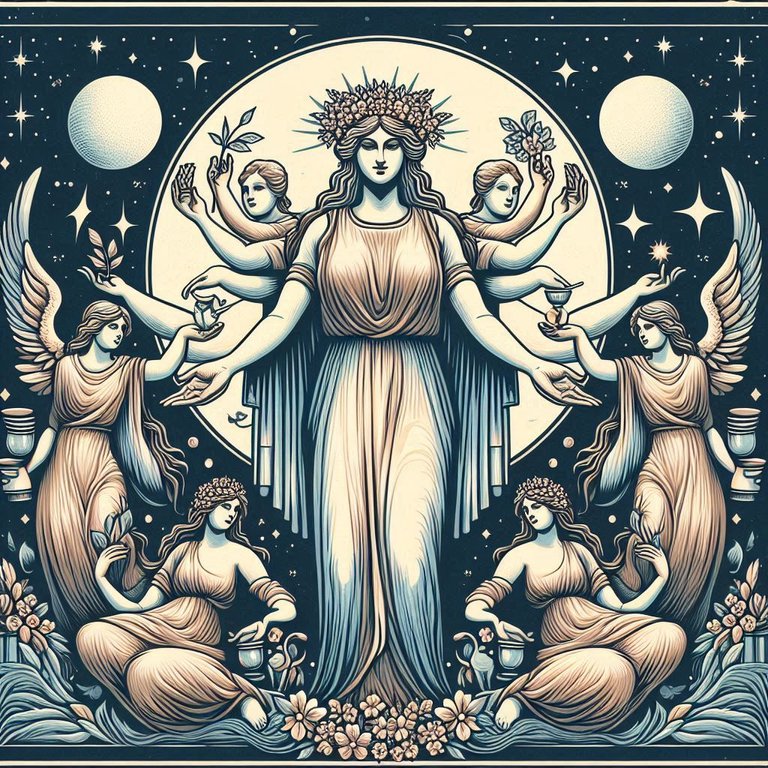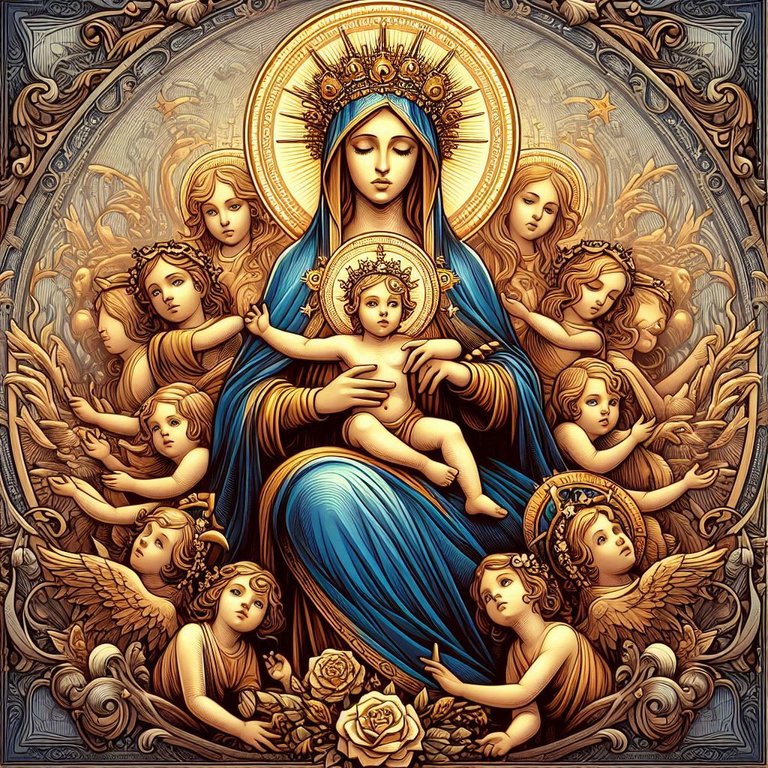Mothers Day
The Origin and Evolution of Mother's Day

Mother’s Day, a celebration honoring the mother of the family, as well as motherhood, maternal bonds, and the influence of mothers in society, has a rich history dating back centuries.
This special day is observed in various forms across the globe, but its origins can be traced to ancient times.
Ancient Beginnings

The earliest precursor to Mother’s Day can be found in the ancient Greek and Roman festivals that honored maternal goddesses.
The Greeks dedicated an annual spring festival to Rhea, the mother of the gods, while the Romans celebrated Hilaria, a festival dedicated to Cybele, the mother of the Roman gods.
Early Christian Influence

With the spread of Christianity, these pagan festivals evolved to incorporate Christian traditions. In the United Kingdom, Mothering Sunday emerged as a Christian holiday celebrated on the fourth Sunday of Lent.
It was a time for Christians to return to their "mother church" and honor the Virgin Mary.
The Modern Mother's Day Movement
The Mother’s Day we recognize today owes much of its existence to the efforts of social activist Anna Jarvis.
In the United States, Jarvis organized the first official Mother’s Day celebration in 1908 in honor of her late mother, Ann Reeves Jarvis, who had worked to promote peace and public health during the Civil War era.
Official Recognition
Jarvis's campaign for an official Mother’s Day gained momentum, and in 1914, President Woodrow Wilson signed a proclamation designating the second Sunday in May as Mother’s Day, making it a national holiday in the United States.
Soon, other countries followed suit, adopting the tradition of honoring mothers on this special day.
Global Celebration
Today, Mother’s Day is celebrated around the world, although the dates and customs vary from country to country.
In many cultures, it is a day to express gratitude and love for mothers, grandmothers, and maternal figures through gifts, cards, and acts of kindness.
Interesting Facts and Traditions
- Carnation Symbolism: Anna Jarvis chose the white carnation as the emblem for Mother’s Day because it was her mother's favorite flower.
White carnations symbolize purity, love, and virtue.
Busiest Day for Restaurants: Mother’s Day is one of the busiest days for restaurants in many countries, with families treating their mothers to special meals and dining experiences.
Different Dates: While most countries celebrate Mother’s Day on the second Sunday in May, some, like the United Kingdom and Ireland, celebrate it on Mothering Sunday, which falls on the fourth Sunday of Lent.
Mother's Day Around the World: In Ethiopia, Mother’s Day is celebrated in the fall as part of the Antrosht festival, where families gather to feast and celebrate.
In Thailand, Mother’s Day coincides with the birthday of Queen Sirikit, who is considered the mother of the nation.
- Commercialization Concerns: Anna Jarvis, who initially campaigned for Mother’s Day as a day of sentiment and appreciation, later became disillusioned with its commercialization.
She spent her later years fighting against the commercialization of the holiday, even urging people to boycott Mother’s Day gifts and cards.
Conclusion
Mother’s Day has evolved over the centuries, from ancient festivals honoring maternal goddesses to a modern-day celebration of maternal love and influence.
Despite its commercialization, Mother’s Day remains a meaningful occasion for expressing gratitude and appreciation for the special women in our lives.
As we celebrate Mother’s Day each year, let us remember its origins and the spirit of love and gratitude that inspired its creation.
- All images created with ai
Posted Using InLeo Alpha
I enjoyed reading this. I didn’t know this much about Mother’s Day. Now I do and it’s thanks to you. Wow. The world is rich with history…
Thanks for stopping by, have some !PIMP
You must be killin' it out here!
@dynamicrypto just slapped you with 1.000 PIMP, @deraaa.
You earned 1.000 PIMP for the strong hand.
They're getting a workout and slapped 1/2 possible people today.
Read about some PIMP Shit or Look for the PIMP District
This is truly a recount of very rich history. Mother's Day is also a big deal here in my culture and it's wonderful to see how it all started.🌺
Thanks for reading & commenting !PIMP
You must be killin' it out here!
@dynamicrypto just slapped you with 1.000 PIMP, @jhymi.
You earned 1.000 PIMP for the strong hand.
They're getting a workout and slapped 1/2 possible people today.
Read about some PIMP Shit or Look for the PIMP District
I have never thought of researching Mother’s Day history or how to celebrate Mother’s Day, thanks you sir 🙏 for this post enlightenment am now aware. 😊
Thanks for stopping by !PIMP
You must be killin' it out here!
@dynamicrypto just slapped you with 5.000 PIMP, @mikechrist.
You earned 5.000 PIMP for the strong hand.
They're getting a workout and slapped 2/2 possible people today.
Read about some PIMP Shit or Look for the PIMP District
Really?
I never knew lost countries celebrate Mother’s Day on the second Sunday of May
I’ve always thought there is a particular date for it
Indeed, thanks for commenting !PGM
https://twitter.com/lee19389/status/1789688133044326740
#hive #posh
You've been curated by @amazingdrinks! Delegations welcome!